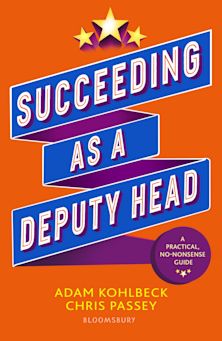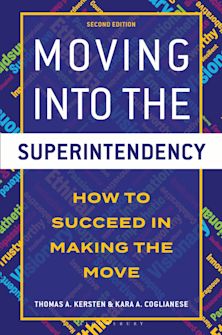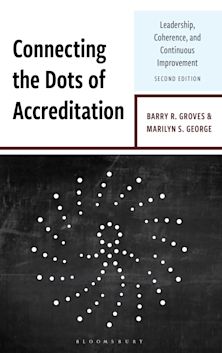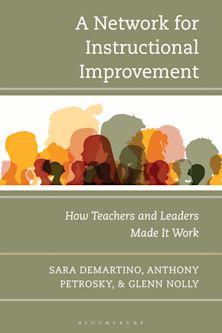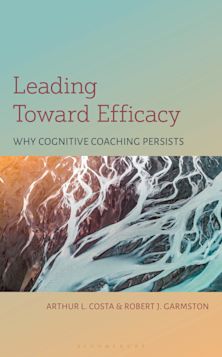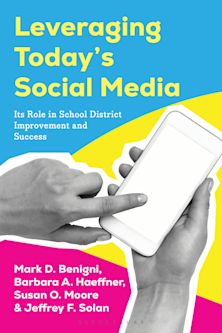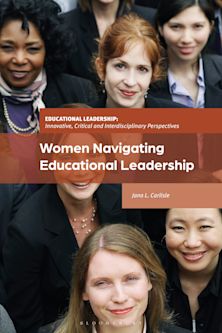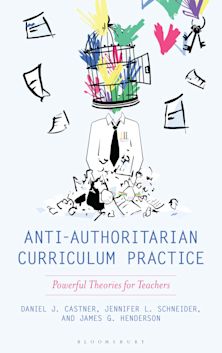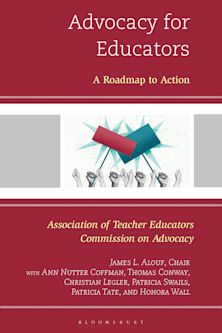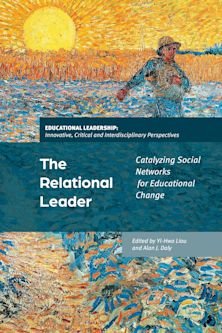- Home
- ACADEMIC
- Education
- Leadership and Management
- A Pocket Guide to Mentoring Higher Education Faculty
A Pocket Guide to Mentoring Higher Education Faculty
Making the Time, Finding the Resources
A Pocket Guide to Mentoring Higher Education Faculty
Making the Time, Finding the Resources
This product is usually dispatched within 1 week
- Delivery and returns info
-
Free US delivery on orders $35 or over
You must sign in to add this item to your wishlist. Please sign in or create an account
Description
This book is written for senior faculty and administrators at resource-strapped institutions who are not trained in higher education administration who are concerned with mentoring. It is written in accessible, nontechnical language but references the more scholarly and statistically based journals and books for those who wish to dig deeper. The book covers the mentoring of junior faculty on the tenure-track line through senior faculty and include coverage of non-tenure track faculty, faculty in hostile departments, and faculty who face additional issues of discrimination. Chapters begin with a fictionalized case study to explore common problems and presents pragmatic solutions that often cost little money and rely instead on an investment of time.
Table of Contents
Chapter 1: Mentoring at the Second Tier
Chapter 2: Mentoring Tenure-Track Junior Faculty
Chapter 3: Mentoring Mid-career Faculty: Life between Tenure and Promotion to Full Professor
Chapter 4: Mentoring Senior Tenured Faculty
Chapter 5: Mentoring Non-Tenure Track Faculty
Chapter 6: Advising Faculty in Hostile or Non-Supportive Departments: Separating the Perception from the Reality and the Power of Communication
Chapter 7: Dealing with Bias: Subtle and Not so Subtle Obstacles for Women and Faculty of Color
About the Author
Index
Product details
| Published | Jun 05 2018 |
|---|---|
| Format | Hardback |
| Edition | 1st |
| Extent | 100 |
| ISBN | 9781475840919 |
| Imprint | Rowman & Littlefield Publishers |
| Dimensions | 9 x 6 inches |
| Publisher | Bloomsbury Publishing |
About the contributors
Reviews
-
The best mentors are the people who have broad and deep experience in the complex challenges of academic leadership. The problem is that those same people often have the least amount of time to get up to speed on the best practices used by effective mentors. A Pocket Guide to Mentoring Higher Education Faculty eliminates that problem by providing concise, practical, and immediately useful advice on how to succeed as a mentor and build an effective mentoring program. With this book at your fingertips, you’ll have everything you need to succeed in mentoring others while still having the time to do it.
Jeffrey L. Buller, senior partner, ATLAS Leadership Training
-
In A Pocket Guide to Mentoring Higher Education Faculty: Making the Time, Finding the Resources, Tammy Stone offers a powerhouse of resources to help you navigate the good, the bad and the unexpected moments of faculty mentoring, especially when resources are limited. Easy to read and implement, she offers serious tools for the reality of your institution and your faculty. It’s my new go-to partner in meeting mentoring challenges across the academic lifespan.
Mary Coussons-Read Ph.D, professor and department chair, Department of Psychology, The University of Colorado Colorado Springs
-
New department chairs will find this book especially helpful as they begin to lead their academic colleagues. Associate deans,deans, and those who aspire to these roles, as well as the position of department chair or program director, could also benefit from the suggestions, questions, and initiatives discussed by Stone. I recommend it for these audiences as well as for anyone interested in the more general issues inherent in higher education leadership.
The Department Chair














